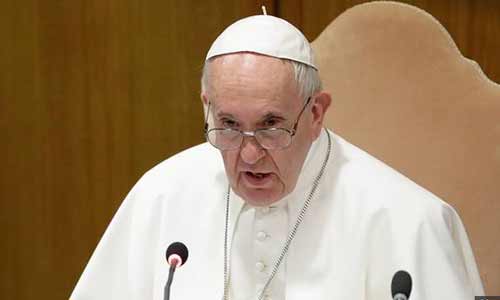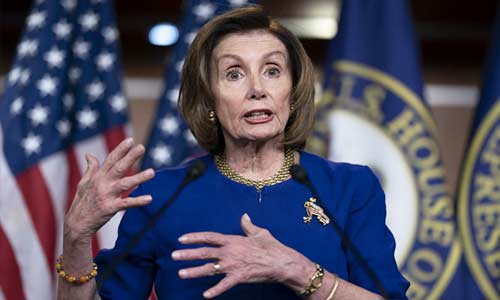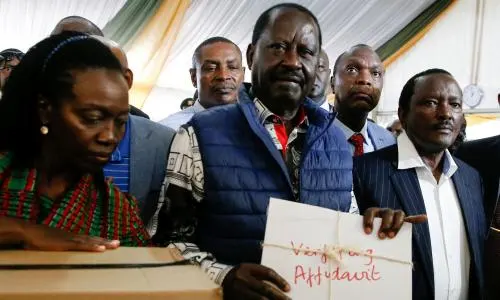INTERNATIONAL 20/03/2022
Pope Rules Baptised Lay Catholics, Including Women, Can Lead Vatican Departments

Pope Francis introduced a significant reform on Saturday, allowing any baptized lay Catholic, including women, to lead most Vatican departments under a new constitution for the Holy See’s central administration.
While the departments have been governed by male clergy, often cardinals or bishops, that might change from June 5 to the date of the adoption of the new charter.
The 54-page version of the predicament Praedicate Evangelium (Preach the Gospel) was published on the ninth anniversary of Francis’ arrival as pope in 2013, but the first one was approved in 1988 by Pope John Paul II.
According to the preamble, the “pope, bishops, and other ordained ministers are not the only evangelisers in the Church,” claiming that laymen and women “should have the powers of government and responsibility” in the central government, known as the Curia.
If the Pope approves those who are qualified, the constitution may mandate a dicastery or organization in the principles section.
Under the 1988 constitution, departments were to be led by a cardinal or bishop, as well as by a secretary, experts, and administrators.
According to experts, the new constitution does not distinguish between lay men and lay women, but that at least two departments – the department for bishops and the department for clergy – will remain the leaders of men because only men can be priests in the Catholic Church.
The ministry for consecrated life, which is responsible for religious orders, might be headed by a nun in the future, according to experts. It is now headed by a cardinal.
In an interview with Reuters in 2018, the pope claimed he had selected a woman to lead a Vatican economic division, but she would not be fired for personal reasons.
‘ESSENTIAL’ ROLE OF LAITY
The notion that lay Catholics would play governing roles in the Curia was “essential” owing to their understanding of family living and “social realities” according to the new constitution.
Francis amalgamated several offices and established a new one to oversee charity initiatives.
The Pontifical Commission for the Protection of Minors, which includes laymen and abuse victims, appears to have gained institutional influence by being incorporated into the doctrinal section, which has decided on sanctions for priests convicted of sexual abuse.
On Twitter, one of the commission’s original members, Marie Collins of Ireland, said that the decision could sabotaging its independence.
While the Secretariat of State kept its leading role as administrative, coordination, and diplomatic division, the centuries-old high status of the doctrinal office was placed below the of the department of evangelisation.
The Pope will lead the evangelisation office self-destruction, highlighting the importance that he attaches to expanding and resurrecting the faith.
Francis has already appointed a number of clergy, including one of them women, to the Vatican services.
Last year, he elected a woman to the number two position in the Vatican City governorship, making Sister Raffaella Petrini the world’s tallest woman.
Alessandra Smerilli, an Italian nun, was appointed to the interim seat of the Vatican’s development division, which focuses on justice and peace.
Nathalie Becquart, a French member of the Xaviere Missionary Sisters, has been named co-undersecretary of the Synod of Bishops by Francis, which has organized significant meetings of worldwide bishops every few years.



